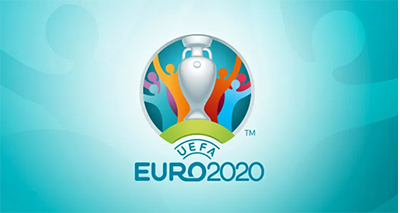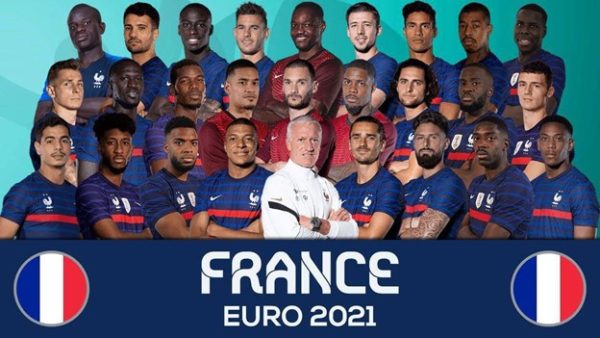The (Mostly) European Football Championships
Jack Krak, American Renaissance, June 30, 2021

The 2020 European Football Championships are being held now, a year late because of COVID-19. Top-level football is supposed to be the main attraction, but the tournament has become a demonstration of the massive demographic changes in many European countries.
For anyone who doesn’t already know, it’s time to replace whatever stereotypical images you may have of, say, the Swedish or German national teams.
Of the 26 players allowed on an international roster, Germany has six players with at least one foreign-born, non-European parent. There are two with Turkish parentage, which is perhaps not so surprising in Germany, but the people of Sierra Leone, Ivory Coast, Nigeria, and Senegal cheer when their sons take the field with the German team.
The Dutch national team has three players with at least one parent from the former Dutch colony of Suriname, two players with parents from Curaçao, and one player each with parents from Togo, Ghana, and the Ivory Coast.
Belgium has a player who was born in Zaire, as it was then called, and no less than five players with at least one parent from the Democratic Republic of the Congo, as it’s called now. The Belgian team is further diversified by players with backgrounds from Morocco, Ghana and Martinique. About a third of the Belgian team has close and recent ties to Africa.
Even casual fans notice that something is off with the English team. One player was actually born in Jamaica, and two more have parents from the same island. They’re joined by four teammates with parents from Barbados, St. Kitts, Trinidad & Tobago, and Nigeria. There are another three non-white players on the England squad with origins I’ve been unable to determine. That’s 10 players out of 26 with nearly all of their genetic heritage from outside of Europe.

Bukayo Saka and three fellow Englishmen (courtesy of the English Football Association).
The Swiss team is not very Swiss. Two players were born in Cameroon and three are Muslims from different parts of the former Yugoslavia. No fewer than 12 players have at least one parent from such places as Congo (three of them), Nigeria, Turkey, Sudan, Albania, Senegal, Cape Verde, and Dominica. Based on the best information I can find, Switzerland’s national team has only nine players born in Switzerland to Swiss parents.
Sweden has players with parents from Congo, Eritrea, Ghana, and Cape Verde. For the Austrian team, there are two from Nigeria, one from Angola, and another from the Philippines, so even Sweden and Austria are nearly 20 percent “diverse.”
That brings us to the French national team, which is easier to describe with a photo:

The French National Football Team (courtesy of UEFA).
Mixed parentage and generous citizenship policies have long created odd and unexpected European national teams. Many talented players are eligible to play for a nation they’ve never seen because of inherited citizenship. The Republic of Ireland was famous for issuing passports to UK-born footballers with one grandparent from Ireland. When Germany won the World Cup in 2014, it had two key players who were born in Poland but claimed German nationality through their parents.
Sometimes, players end up in odd places because of contacts they had made or due to deliberate rule-bending to add talent. Even the Russian national team has a player named Mario Fernandes. Nigerian-born Emmanuel Olisadebe married a Polish woman, and the President of Poland personally expedited his citizenship so he could play for the national team. He then scored almost 40 percent of Poland’s goals during the qualifying tournament for the 2002 World Cup.
But what we’re seeing now is the result of mass immigration from every corner of the world. These are not top athletes who left their home countries to play professionally here and then go home. Almost all of them were born in Europe and they’re not going anywhere.
Think about the odds against success at such an elite athletic level. How many Congolese have to be living in Belgium for there to be six of them on the national team? How many Ghanians or Angolans or Senegalese does a nation have to have before one of them breaks through?
And what are the 99.9 percent who don’t make it doing here, anyway? This doesn’t get much consideration from many flag-waving, face-painted fans, but more spectators than ever are noticing how many teams today look very different from teams of not so long ago.

England football fans celebrate outside Wembley Stadium after England’s 2:0 win in a match against Germany during the Euro 2020 Championship on June 29, 2021. (Credit Image: © Wiktor Szymanowicz/NurPhoto via ZUMA Press)
Most of those who acknowledge the transformation are the same ones who are happy to take advantage of one of the few socially acceptable expressions of European national pride, where the pageantry of national flags and symbols is largely limited to sporting events. Healthy nationalist instincts have to be channeled through the moderating forum of a football match. But how much longer will they cheer a team that wears the shirt they love but is increasingly from faraway lands?
Here in Poland, the makeup of the French team, for example, is the subject of much private mockery among friends, but such comments are now not considered respectable. The global online monoculture of leftist values, especially on race and immigration, is powerful, and Poles have learned, mostly from America and from West-European liberals, what can and cannot be said in public. Just as in America, a large portion of the population of Poland has sensible views, but are bombarded with the message that it’s not nice to discuss them.
Meanwhile, the transformation continues.
Euro 2020 has not been the best tournament for the nations of Eastern Europe, which is to say, for the teams composed of people actually from those countries — excepting that one Russian player and a few other oddities, such as a black who plays for Hungary. The Czech Republic and Ukraine were the only all-European teams to make the quarterfinals while Poland, Slovakia, Russia, Hungary, Croatia and Macedonia all went home earlier.
These nations may have lost on the pitch, but France, Belgium, Germany, the Netherlands, and other Western European nations are losing at home.















